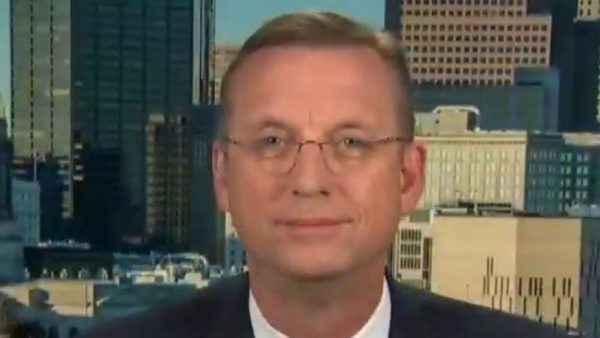In 1880, Charles Guiteau, a little-known lawyer from Illinois who fancied himself a Republican political operative, distributed a few hundred copies of a speech he had written in support of James Garfield’s presidential candidacy. When Garfield narrowly beat out his Democratic opponent, Guiteau was certain his speech had played a central role in the newly elected president’s victory. For his supposed assistance, Guiteau demanded a diplomatic post in Vienna or Paris. When it became clear that no such position would ever be awarded to him, Guiteau assassinated President Garfield.
Such was the spoils system, which ruled American politics from roughly 1828 until 1883. Under the scheme, jobs in the federal government were handed out based on loyalty to the president, not merit or ability. Federal agencies were stacked with campaign figures and political appointees. These government officials were totally beholden to the political whims of the president and wholly unequipped to perform their duties for the American people.
Under this system, it didn’t matter if a federal employee couldn’t perform the job they were hired for, because the most important job of any federal new hire was raising money for the president’s campaign and making the president look good. Now, thanks to nearly a century and a half of reform efforts, we have a merit-based civil service where federal employees are skilled, knowledgeable, and committed to performing their job as set forth in law by Congress for the American people. But it wasn’t always so.
ADVERTISEMENT
When the corrupt, sordid details of the spoils system were laid bare for the American people in the aftermath of Garfield’s assassination, Congress had little choice but to take action, despite the fact that proponents of the spoils system, called spoilsmen, had spent decades stonewalling any attempts at civil service reform. Having benefited from the corrupt spoils system, these politicians had no interest in changing it.
In 1883, under intense public pressure, Congress finally took action and passed the Pendleton Civil Service Reform Act, which made some modest reforms to the system, introducing merit protections, creating an independent Civil Service Commission, and requiring applicants for some federal jobs to apply using written exams.
For nearly 150 years, American government has expanded on those reforms. By further developing merit systems principles, by protecting civil servants from political influence, and, yes, by acknowledging the union rights of federal employees so they have a contract and a procedure to hold rogue managers and political appointees accountable, we have created a professional civil service that is the envy of most other nations in the world. As the president remarked himself at a recent press conference on the coronavirus outbreak – when catastrophe strikes, other countries reach out to the career experts in the U.S. federal government for advice and assistance.
But even as he praises federal employees in moments of convenience, President Trump Donald John TrumpThe Hill’s Morning Report – Trump shifts his tone on coronavirus Senators balance coronavirus action with risks to health Coronavirus adds new element to rising US-Iran tensions MORE is turning back the clock on critical, longstanding civil service reforms, reaching back to a dark and ignoble period of American history when the fruits of political corruption unleashed chaos on the country.
Donald John TrumpThe Hill’s Morning Report – Trump shifts his tone on coronavirus Senators balance coronavirus action with risks to health Coronavirus adds new element to rising US-Iran tensions MORE is turning back the clock on critical, longstanding civil service reforms, reaching back to a dark and ignoble period of American history when the fruits of political corruption unleashed chaos on the country.
Recent reports from Axios and Government Executive, and even the words of the president’s own spokesperson on Fox News, confirm that President Trump has tapped a 29-year-old former body man who was fired by then-chief of staff John Kelly John Francis KellyMORE to lead a governmentwide effort to purge federal employees who are not sufficiently loyal to the president. All this on the heels of the already-near-total ouster of career officials who testified during the impeachment inquiry.
John Francis KellyMORE to lead a governmentwide effort to purge federal employees who are not sufficiently loyal to the president. All this on the heels of the already-near-total ouster of career officials who testified during the impeachment inquiry.
ADVERTISEMENT
If the president is successful in executing such a purge of supposedly “disloyal” federal employees, the ramifications will be felt for decades to come throughout our political system and our government.
These actions will plunge American’s federal government back into a system of prosaic corruption, sleaze and dishonesty. It will make it more difficult – if not impossible – for whistleblowers who have identified waste, fraud or abuse to come forward and inform the American public. And, finally, it will make it intolerably challenging for the federal government to marshal credibility, truth, facts and science to address global or national crises like a pandemic.
Our civil servants are providing vital services to the American people – from veterans in our communities who get their care at the VA, to elderly Americans relying on Social Security benefits to get through the month, to victims of natural disasters who need assistance from FEMA, to our brave service members who depend on civilian defense employees to get them the resources they need to fight for our freedoms, to all of us trusting the scientists at EPA and CDC who are protecting our environment and human health. When the stakes are this high, we can’t afford to turn back the clock to 1880.
Everett Kelley is national president of the American Federation of Government Employees, AFL-CIO, which is the largest union representing federal and D.C. government employees.


